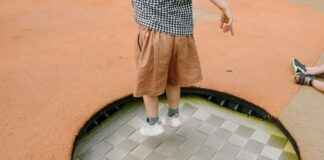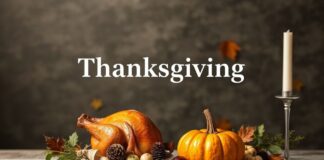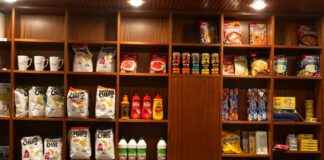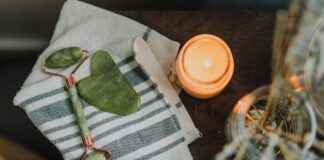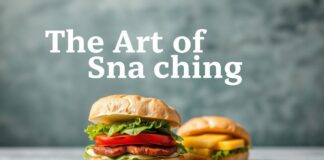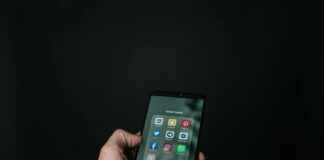De Kunst van het Lezen: Waarom Boeken nog steeds Relevant zijn...
De Opkomst van Duurzame Energie: Een Kijkje in de Toekomst
De Opkomst van Duurzame Energie: Een Kijkje in de Toekomst
Bounce Valley Rotterdam Luchtkussenpark Airconditioning Aanwezig
Hoe Laat Is Het Nu In Curaçao
Het Geheim van een Succesvolle Feestorganisatie: Tips en Tricks
De Kunst van Genealogie: Ontdek Je Familiegeschiedenis
De Kunst van het Lezen: Waarom Boeken Onze Verstand Verrijken
Het Magische van Dankdag: Tradities en Feesten
De Fascinerende Wereld van Indonesische Cultuur en Economie
De Fascinerende Wereld van Indonesische Cultuur en Economie
De Kunst van het Reizen: Tips en Tricks voor een Onvergetelijke...
De Magie van Muziek: Een Universale Taal
De Fascinerende Wereld van Jellyfish: Een Diepgaande Blik
De Kunst van het Reizen: Tips en Tricks voor Onvergetelijke Avonturen
Hoe Laat Is Het In Thailand
Amouranth OnlyFan Leaks – Alles wat er bekend is
De Kunst van het Reizen: Tips en Tricks voor Onvergetelijke Reizen
De Kunst van het Reizen: Tips en Tricks voor een Onvergetelijke...
Het Belang van een Gezond Leven: Tips en Adviezen voor een...
De Fascinerende Wereld van Jellyfish: Ontdek de Geheimen van Deze Mysterieuze...
De Fascinerende Wereld van Jellyfish: Ontdek de Geheimen van Deze Mysterieuze...
De Opwinding van het Dagelijks Leven: Ontdek de Kleine Pretjes
De Opwinding van het Dagelijks Leven: Ontdek de Kleine Pretjes
Het Belang van Regelmatig Onderhoud van Je Motor
Het Belang van Regelmatig Onderhoud van Je Motor
De Kunst van het Dagelijks Rijden: Tips en Adviezen
De Kunst van het Dagelijks Rijden: Tips en Adviezen
De Voordelen van Vrijwilligerswerk voor Studenten
De Voordelen van Vrijwilligerswerk voor Studenten
OnlyFans Leaked Videos – Wat circuleert er op internet?
The Tea Lab Nieuwe Binnenweg Rotterdam
De Magie van Klassieke Muziek: Een Diepgaande Blik
De Kunst van het Leven: Tips en Tricks voor een Voldaan...
De Fascinerende Wereld van Neurologie: Alles Wat Je Moet Weten
Het Verborgen Verhaal Achter Dagelijkse Gewoontes
Het Verborgen Verhaal Achter Dagelijkse Gewoontes
De Kunst van het Bewaren van Herinneringen: Het Belang van Fotoalbums
De Kunst van het Bewaren van Herinneringen: Het Belang van Fotoalbums
De Kunst van het Leven: Een Gids voor Volwassenen
De Kunst van het Leven: Een Gids voor Volwassenen
Duurzame Energie: De Voordelen van Zonnepanelen
De Kunst van het Zelfverzorgen: Tips en Tricks voor een Gezond...
De Kunst van het Leven: Een Diepgaande Kijk op Dagelijkse Wijsheid
De Kunst van het Leven: Een Diepgaande Kijk op Dagelijkse Wijsheid
Zonnebank Studio La Costa Rotterdam Centrum
Xpert Clinics Hand En Polszorg Rotterdam
De Kunst van het Reizen: Tips en Tricks voor een Onvergetelijke...
De Kunst van Het Leven: Een Diepgaande Kijk op Algemene Interesses
De Kunst van het Snacken: Gezonde en Lekkere Opties voor onderweg
De Kunst van het Reizen: Tips voor een Onvergetelijke Reiservaring
De Kunst van het Reisverslag: Tips en Tricks voor Aspirant-Schrijvers
De Kunst van het Reisverslag: Tips en Tricks voor Aspirant-Schrijvers
De Fascinerende Wereld van Zonne-energie: Alles Wat Je Moet Weten
De Fascinerende Wereld van Zonne-energie: Alles Wat Je Moet Weten
Het Belang van Effectieve Communicatie in het Digitale Tijdperk
De Opkomst van Webontwikkeling: Een Diepgaande Blik
De Kunst van het Mindful Leven: Tips en Technieken voor een...
De Toekomst van Mode: Een Blik op de Trends van 2026
Hoe Laat Is Het In Mexico
F1nn5ter OnlyFans Leaked – De waarheid achter het lek
De Kracht van Social Media in de Moderne Wereld
De Kunst van het Leven: Een Diepgaande Blik op het Dagelijks...
De Kunst van Trendvolgende Handel: Een Diepgaande Gids
De Kunst van het Investeren: Een Diepgaande Gids voor Beginners
De Kunst van het Kweken van Kruiden: Een Complete Gids
De Kunst van het Kweken van Kruiden: Een Complete Gids
De Kunst van het Vrijwilligerswerk: Een Gids voor Beginners
De Magie van Bibliotheken: Een Reis door de Wereld van Boeken...
De Kunst van het Besparen: Tips voor Slimme Financiële Keuzen
De Kunst van het Besparen: Tips voor Slimme Financiële Keuzen
Het Belang van Financiële Geletterdheid in het Moderne Leven
Laatste nieuws uit Rotterdam
Suomen Uutiset: Trendejä ja Tärkeitä Päivityksiä
Suomi on tunnettu monista positiivisista saavutuksistaan, kuten korkeasta koulutustasostaan, hyvinvointivaltiostaan ja innovatiivisista yhteiskuntapolitiikoistaan. Uutiset Suomessa keskittyvät jatkuvasti kehitykseen eri alueilla, kuten taloudessa, politiikassa, koulutuksessa ja kulttuurissa. Tässä artikkelissa tarkastelemme tärkeimpiä trendejä ja päivityksiä, jotka muovaavat Suomea tänään.
Talousuudistukset ja Elvytys
Suomen talous on ollut viime vuosina elpymisen polulla, erityisesti pandemiaa seuranneen taloudellisen taantuman jälkeen. Hallitus on esitellyt elvytystoimia, kuten suuria investointeja infrastruktuuriin ja tukipaketteja eri teollisuudenaloille. Samalla keskustelua käydään veropolitiikasta ja siitä, miten valtion velkaa hallitaan pitkällä aikavälillä. Erityisesti pienet ja keskisuuret yritykset ovat saaneet huomiota taloudellisessa keskustelussa.
Koulutuksen Uudistukset
Suomi on edelleen maailman johtavia maita koulutuksessa, ja sen koulutusjärjestelmä on saanut kiitosta kansainvälisesti. Koulutuksen kehittämistä jatketaan kuitenkin jatkuvasti. Esimerkiksi peruskoulun ja lukion oppisisältöjä päivitetään jatkuvasti vastaamaan paremmin 2020-luvun tarpeita. Myös digitaalisten oppimisvälineiden käyttöönotto on noussut keskiöön. Suomessa otetaan käyttöön uusia teknologioita, kuten tekoälyä ja virtuaalitodellisuutta, koulutuksessa. Uudet opetussuunnitelmat keskittyvät entistä enemmän elinikäiseen oppimiseen ja monikulttuurisuuteen.
Ympäristöpoliittiset Päivitykset
Ympäristökysymykset ovat saaneet Suomessa entistä enemmän huomiota. Suomi on asettanut itselleen kunnianhimoisia tavoitteita ilmastonmuutoksen torjumiseksi ja kestävämmän yhteiskunnan rakentamiseksi. Valtio on sitoutunut hiilineutraaliustavoitteisiin vuoteen 2035 mennessä. Uutisia käsitellään muun muassa uusiutuvan energian hankkeista, kuten tuulivoiman ja aurinkoenergian laajentamisesta. Myös kierrätyksen ja jätteiden vähentämisen edistämiseen liittyvät ohjelmat ovat saaneet paljon positiivista huomiota.
Politiikan Päivitykset
Suomen poliittinen ilmapiiri on käynyt läpi merkittäviä muutoksia viime vuosina. Viimeaikaiset vaalit, kuten eduskuntavaalit ja presidentinvaalit, ovat olleet monille tärkeä aihe, ja vaalitulokset ovat usein herättäneet vilkasta keskustelua kansan ja poliitikkojen välillä. Keskustelua käydään erityisesti hallituksen kokoonpanosta, eri puolueiden poliittisista ohjelmista ja talouspolitiikasta. Tällä hetkellä erityistä huomiota saa myös maahanmuutto- ja sosiaaliturvapolitiikka.
Kulttuuri- ja Taideuutiset
Suomi on kulttuurisesti monivivahteinen maa, ja taide- ja kulttuuriuutiset ovat keskeinen osa suomalaista mediakenttää. Erityisesti Suomen itsenäisyyspäivän juhla ja kulttuuriperinnön vaaliminen saavat paljon huomiota. Lisäksi suomalaiset elokuvateatterit, näyttelyt ja konserttitapahtumat houkuttelevat niin paikallisia kuin turistejakin. Taidekentän ajankohtaiset tapahtumat, kuten festivaalit ja kulttuuriprojektit, ovat jatkuvasti uutisoinnin kohteena.
Terveyspalvelut ja Pandemian Vaikutukset
Pandemian vaikutukset Suomessa näkyvät edelleen terveyspalveluiden ja julkisen terveydenhuollon alalla. Terveydenhuoltojärjestelmän sopeuttaminen, lääkkeiden saatavuus ja koronatilanteen hallinta ovat tärkeimpiä keskustelunaiheita. Samalla Suomessa puhutaan erityisesti terveyden eriarvoisuudesta ja miten kaikilla kansalaisilla olisi tasavertainen pääsy palveluihin. Uutiset käsittelevät myös valtion ja kuntien resursseja terveydenhuollon parantamiseksi.
Innovaatioiden Kehittäminen
Suomi on tunnettu innovaatiokyvyistään, ja monet suomalaiset yritykset ovat olleet edelläkävijöitä teknologian ja kestävän kehityksen alueilla. Erityisesti startup-kulttuuri on saanut lisää näkyvyyttä viime vuosina, ja uutisissa käsitellään uusien teknologioiden kehittämistä eri aloilla, kuten tekoälyssä, robotiikassa ja bioteknologiassa. Monet suomalaiset kaupungit, kuten Helsinki, ovat nousseet teknologiakeskuksiksi, joissa uudet yritykset saavat tukea ja voivat kasvaa kansainvälisiksi toimijoiksi.
Työmarkkinat ja Palkkakeskustelu
Työmarkkinoilla Suomessa on käynnissä jatkuva keskustelu työehdoista, palkoista ja työvoimapulasta. Erityisesti hoitoalalla ja teknologia-alalla on havaittavissa suuria rekrytointivajeita. Työntekijöiden oikeudet, työaikakysymykset ja etätyön mahdollisuudet ovat nousseet tärkeiksi keskustelunaiheiksi. Suomessa tehdään myös paljon työtä, jotta työelämän ja perhe-elämän yhteensovittaminen olisi entistä helpompaa.
Turvallisuus ja Ulkoasiat
Suomi on perinteisesti ollut tunnettu vakaasta ja turvallisesta yhteiskunnastaan, mutta kansainväliset kriisit, kuten Itä-Euroopan geopoliittinen tilanne, ovat nostaneet keskustelun ulko- ja turvallisuuspolitiikasta. Suomen rooli EU:ssa, Natoon liittymisen keskustelut ja yhteistyö Pohjoismaiden välillä ovat jatkuvia keskustelunaiheita. Myös kansainväliset konfliktit, kuten Syyrian ja Ukrainan tilanne, herättävät paljon huomiota.
Urheilun Menestykset ja Haasteet
Urheilu on tärkeä osa suomalaista kulttuuria, ja uutiset suomalaisista urheilijoista ja menestyksistä eri lajeissa täyttävät usein otsikot. Talvella erityisesti jääkiekko, hiihto ja mäkihyppy ovat suosittuja, mutta kesällä huomiota saavat myös yleisurheilukisat ja jalkapallon liigat. Suomalaisten urheilujoukkueiden kansainväliset kilpailut ja mitalit herättävät ylpeyttä, mutta myös urheilujärjestelmien kehittäminen ja urheilun rahoitus ovat ajankohtaisia keskusteluaiheita.











